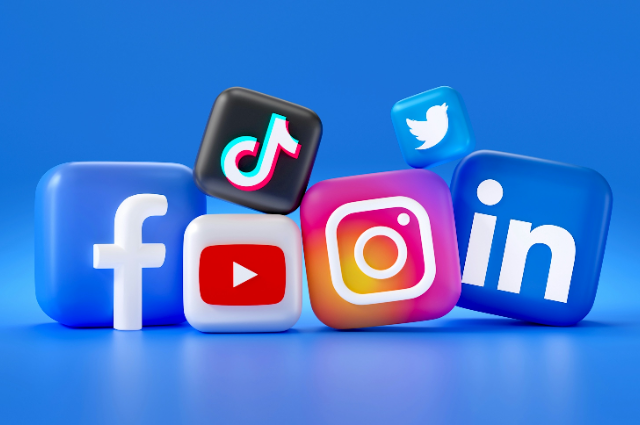
Photo by Mariia Shalabaieva on Unsplash
Introduction
Social media has become an integral part of contemporary life, fundamentally transforming the way we communicate, share information, and interact with one another. Platforms like Facebook, Twitter, Instagram, and TikTok have transcended their original purpose of connecting friends and family, evolving into powerful tools for marketing, activism, and even political discourse. This article explores the multifaceted impact of social media on modern society, examining its benefits, challenges, and implications for the future.
The Rise of Social Media
The inception of social media can be traced back to early platforms like Friendster and MySpace, but the landscape truly changed with the launch of Facebook in 2004. This marked the beginning of a new era, as millions flocked to create profiles and share their lives online. With the advent of smartphones and mobile internet, social media usage skyrocketed, making it more accessible than ever. Today, social media platforms boast billions of users worldwide. This vast network has created a global village, where information flows freely and rapidly across borders. The democratization of content creation has empowered individuals to voice their opinions, share their stories, and connect with like-minded people, fostering a sense of community that transcends geographic limitations.
Social Media as a Communication Tool
One of the most significant impacts of social media is its role as a communication tool. It has revolutionized the way we connect with others, allowing for real-time interactions regardless of distance. Whether through text, images, or video, social media enables users to share their thoughts and experiences instantly. This immediacy has changed interpersonal relationships, particularly among younger generations. The ability to maintain friendships through likes, comments, and shares has redefined social dynamics. However, this shift also raises concerns about the quality of these interactions. While social media can foster connection, it can also lead to superficial relationships, as individuals may prioritize online engagement over face-to-face interactions.
The Role of Social Media in Business
Social media has also transformed the business landscape. Companies are leveraging these platforms to engage with customers, promote products, and build brand loyalty. The rise of influencer marketing has further blurred the lines between social media and commerce, as brands collaborate with individuals who have established followings to reach targeted audiences. The advantages of social media for businesses are manifold. It allows for direct communication with consumers, real-time feedback, and the ability to tailor marketing strategies based on analytics. Furthermore, social media advertising offers cost-effective options for reaching potential customers, enabling even small businesses to compete in a crowded marketplace. Social Media and Activism Beyond personal communication and commerce, social media has emerged as a powerful platform for activism. Movements such as #BlackLivesMatter and #MeToo have gained momentum through social media, mobilizing individuals and raising awareness about critical social issues. These platforms provide a space for marginalized voices to be heard, fostering solidarity and collective action. The viral nature of social media campaigns can bring global attention to local issues, demonstrating the potential of online activism to effect real change. However, this power comes with challenges. Misinformation can spread just as quickly as legitimate information, complicating efforts to address social issues. Activists must navigate the complexities of online discourse while ensuring their messages remain clear and impactful.
Mental Health Implications
While social media can facilitate connection and provide a platform for self-expression, it also poses significant mental health challenges. Studies have shown a correlation between heavy social media use and issues such as anxiety, depression, and loneliness. The curated nature of online profiles can lead to unrealistic comparisons, where individuals measure their worth against the highlight reels presented by others. Furthermore, the constant influx of information can contribute to information overload, leaving users feeling overwhelmed. The pressure to maintain an online presence can lead to burnout, as individuals struggle to keep up with the demands of their digital lives. As society continues to grapple with these implications, the need for healthy social media habits has never been more pressing.
Privacy Concerns
As social media platforms grow, so do concerns about privacy and data security. Users often share personal information without fully understanding the implications, leading to vulnerabilities that can be exploited. High-profile data breaches and controversies surrounding user privacy have raised alarm bells about how personal information is collected, stored, and used. Regulatory bodies have begun to take action, with laws such as the General Data Protection Regulation (GDPR) in Europe aimed at protecting user privacy. However, many users remain unaware of their rights and the potential risks associated with their online presence. As social media continues to evolve, ensuring user privacy will be a critical challenge that platforms must address. The Future of Social Media Looking ahead, the future of social media is likely to be shaped by several trends. The rise of augmented reality (AR) and virtual reality (VR) technologies promises to create immersive experiences that could redefine social interaction. Additionally, the increasing focus on mental health and well-being may lead to a shift in how platforms are designed and used. Moreover, the conversation around ethical practices in social media will likely intensify. Users are becoming more conscious of their online behavior and the impact it has on society. This growing awareness may prompt platforms to implement changes that prioritize user well-being, transparency, and accountability.
Conclusion
Social media has undeniably transformed modern society, shaping how we communicate, conduct business, and advocate for social change. While it offers numerous benefits, it also presents significant challenges that must be navigated carefully. As we move forward, finding a balance between the advantages and drawbacks of social media will be crucial. By fostering healthy online habits and advocating for ethical practices, we can harness the power of social media to create a more connected and informed world.
